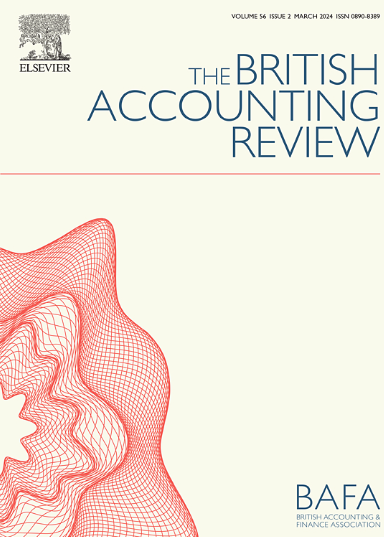创新的涟漪效应:同伴影响如何影响各国的企业创新?
IF 9.4
3区 管理学
Q1 BUSINESS, FINANCE
引用次数: 0
摘要
利用2000年至2019年涵盖41个国家的大型企业层面数据集,并采用工具变量方法来解决内生性问题,我们发现创新投资存在显著的正向同伴效应。值得注意的是,这些同伴效应在新兴国家更为明显,那里的公司利用同伴基准或模仿来克服制度限制。然而,我们的研究结果表明,在创新中驱动模仿行为的机制在发展中国家和发达国家之间有所不同。此外,我们发现模仿同行公司的创新与股东价值呈正相关,特别是在制度薄弱的新兴经济体,模仿策略可能更有益。总的来说,我们的研究强调了制度对公司如何回应同行的投资策略以及这种回应如何影响股东价值的影响。本文章由计算机程序翻译,如有差异,请以英文原文为准。
Ripple effects of innovation: How does peer influence shape corporate innovation across countries?
Using a large firm-level dataset encompassing 41 countries spanning from 2000 to 2019, and employing an instrumental variables approach to address endogeneity, we find significant positive peer effects on investments in innovation. Notably, these peer effects are more pronounced in emerging countries, where firms use peer benchmarking or mimicking to overcome institutional constraints. However, our findings suggest that the mechanisms driving imitative behaviour in innovation vary between developing and developed countries. Furthermore, we find that mimicking peer firms’ innovation positively correlates with shareholder value, particularly in emerging economies with weak institutions, where imitative strategies may be more beneficial. Overall, our study highlights the influence of institutions on how firms respond to the investment strategies of their peers and how such responses impact shareholder value.
求助全文
通过发布文献求助,成功后即可免费获取论文全文。
去求助
来源期刊

British Accounting Review
BUSINESS, FINANCE-
CiteScore
8.60
自引率
3.90%
发文量
39
审稿时长
76 days
期刊介绍:
The British Accounting Review*is pleased to publish original scholarly papers across the whole spectrum of accounting and finance. The journal is eclectic and pluralistic and contributions are welcomed across a wide range of research methodologies (e.g. analytical, archival, experimental, survey and qualitative case methods) and topics (e.g. financial accounting, management accounting, finance and financial management, auditing, public sector accounting, social and environmental accounting; accounting education and accounting history), evidence from UK and non-UK sources are equally acceptable.
 求助内容:
求助内容: 应助结果提醒方式:
应助结果提醒方式:


